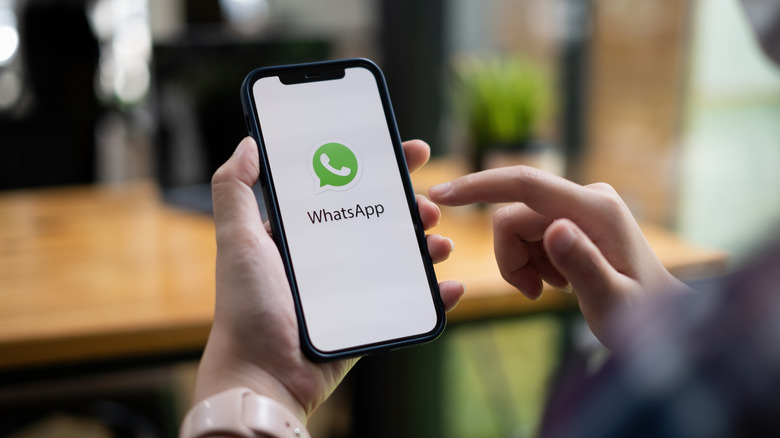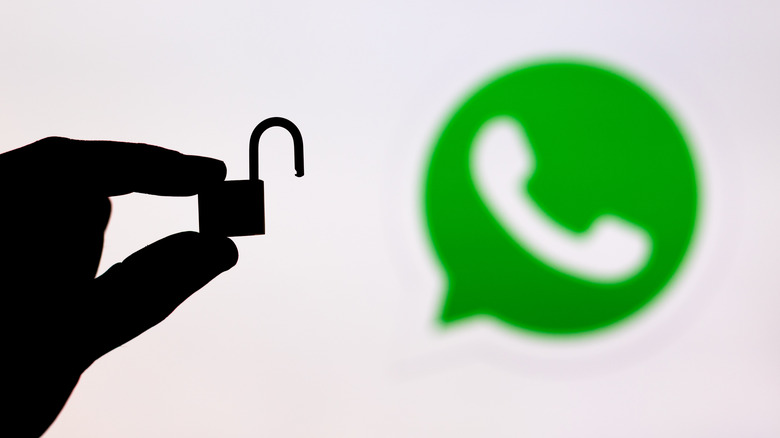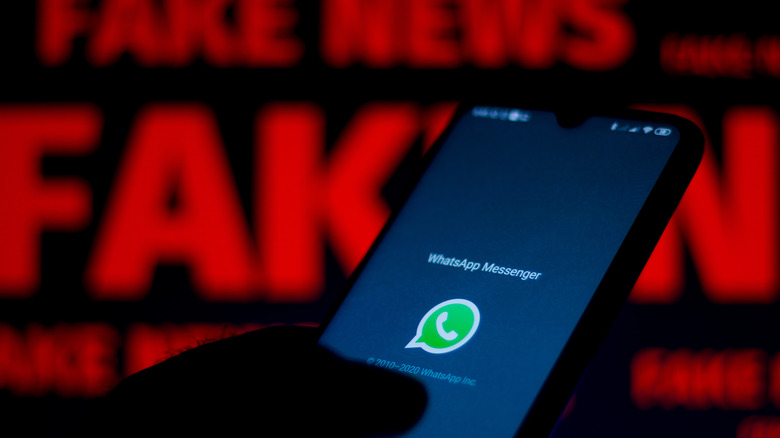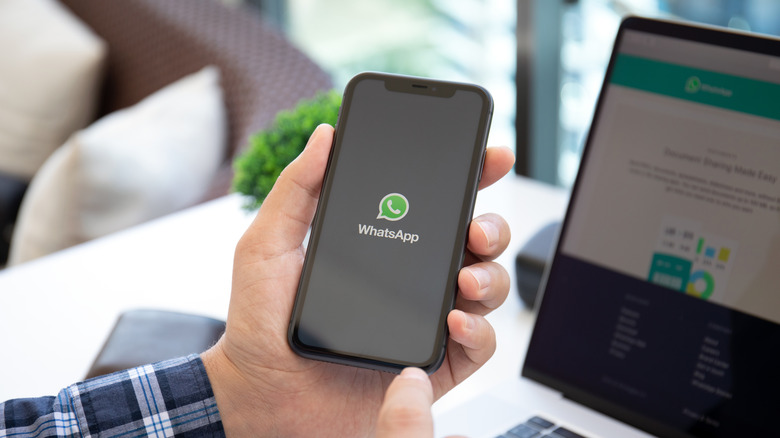Why You Might Not Want To Use WhatsApp Anymore
With over 2 billion global users, WhatsApp is by far the most popular messaging platform in the world. Wild as it may sound, WhatsApp's user base exceeds that of popular apps like Facebook Messenger and iMessage. In several Asian and South American countries, WhatsApp is the de facto messaging platform. Since its announcement in 2009 as a simple texting app that could also be used to share images, WhatsApp has gradually expanded to become a feature-packed app capable of doing much more. Its ever-expanding set of features that range from sending voice messaging and making group video calls to even making quick payments.
While the popularity of WhatsApp cannot be disputed, the platform has increasingly been under scrutiny for several reasons. Most concerns around WhatsApp stem from the fact that it's currently owned by Meta Platforms — the controversial company that owns social media platforms like Facebook and Instagram. Given that WhatsApp is sitting on a virtual gold mine of personal information owing to WhatsApp's massive user base, is it a good idea to continue using the app? Aside from that, there are several compelling grounds for users to stop using WhatsApp.
Privacy concerns galore!
It goes without saying that WhatsApp's parent company — Meta — doesn't have the greatest reputation for safeguarding users' privacy. The company has been subject to several data breaches — including the infamous Cambridge Analytica scandal, in which the political consulting firm used data scraped from Facebook to display targeted political ads. Due to its lax privacy policies, Meta and its apps have been subject to several fines in European countries, several of which have strict privacy laws in place. For example, In 2021, Ireland's Data Privacy Commissioner imposed a fine of €225 million for failing to prevent data breaches on the platform in 2018. In January 2023, WhatsApp was again hit with a fine of €5 million by the Irish DPC for an additional violation of privacy laws.
On several occasions, Meta has been warned by regulators in Europe about its privacy practices and to disclose to users how they use the personal data of their users for "service improvements." Questions have also been raised about the massive amounts of data Meta and its apps collect from its users to gauge users' preferences, interests, and general online behavior. Things came to a head in early 2021 after WhatsApp went back on its long-held promise of never sharing user data — including phone numbers, contacts, and locations — with the rest of the company's apps. This led to a massive backlash from users, resulting in masses of users switching to competing platforms like Telegram and Signal.
A haven for misinformation and fake news
While privacy-related concerns around WhatsApp and the rest of Meta-owned apps were genuine, an even more concerning fact about WhatsApp is its capability to be a potent tool to spread misinformation. Thanks to the sheer pervasiveness of the app, it is effortless for anyone to create a rumor and then spread the message to thousands of people in the span of a few minutes. This has led to devastating consequences on several occasions – even causing the loss of lives. Several such incidents have been reported from countries like India and Brazil, wherein unverified WhatsApp messages have led to lynchings and mob justice.
WhatsApp has made several efforts to curb this menace — including restricting the ability to forward messages to a select number of people and adding a tag "this message has been forwarded several times." However, critics have argued that these checks are inadequate and were not in place in the early days of the app.
Lack of features, no customer care
Surprising as it may seem, despite its massive popularity, WhatsApp has never been known for its extensive features list. In fact, WhatsApp's chief international rival — Telegram — fared better than WhatsApp in almost all aspects and also offered a broader set of features.
However, WhatsApp's first-mover advantage and the fact that people mostly used it as a simple replacement for SMS meant that it was tough for people to wean away from the app. Even people moving away from WhatsApp due to lack of features and privacy concerns often returned to the app, as friends and contacts were hooked to WhatsApp and refused to switch to a competing but more secure platform.
Over time, however, Meta has added most of the "sought-after" features, including group video calls, end-to-end data encryption, disappearing messages, the ability to hide profile pictures from specific contacts, reactions, and an improved group chat experience. Recent additions include the ability to form new communities and the ability to post polls in a group chat.
Another major concern surrounding WhatsApp is the lack of an easy-to-use grievance redressal mechanism. There have been instances of several WhatsApp users being mysteriously booted from the platform for alleged violation of terms and conditions. Making things worse, the app lacks a proper customer care channel to address grievances.
It wasn't always like this
Surprising as it may seem, WhatsApp started as an independent app created by two former Yahoo Employees — Jan Koum and Brian Acton. Like its competitors, WhatsApp was founded on the principles of privacy and security. When approached by Facebook for acquisition in 2014, the founders made it clear that they would go ahead with it only if Facebook promised to fulfill their three main demands: Never using WhatsApp to mine user data, to never show ads on the platform, and to not siphon off user data from WhatsApp.
Unfortunately, the company went back on its promise, prompting Acton to post a famous "Delete Facebook" tweet in 2018. Later, WhatsApp's Chief Business Officer Neeraj Arora wrote a detailed thread on everything that was wrong with the current iteration of WhatsApp.
Incredibly, despite these pitfalls, WhatsApp continues to be the world's most widely used messaging app, and its popularity isn't showing any signs of waning. In fact, for many people living in countries like India, Brazil, Indonesia, and Mexico, it is not easy to convince people to switch to a more secure messaging app.




